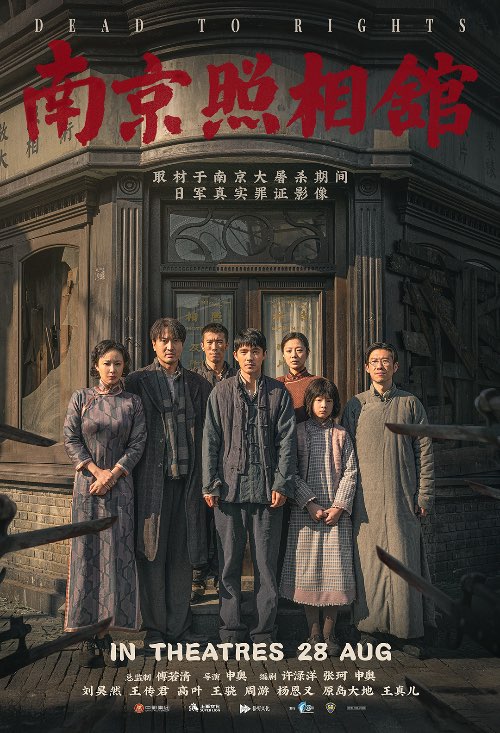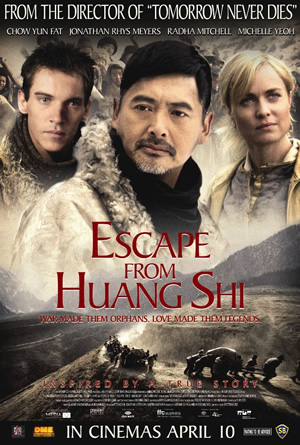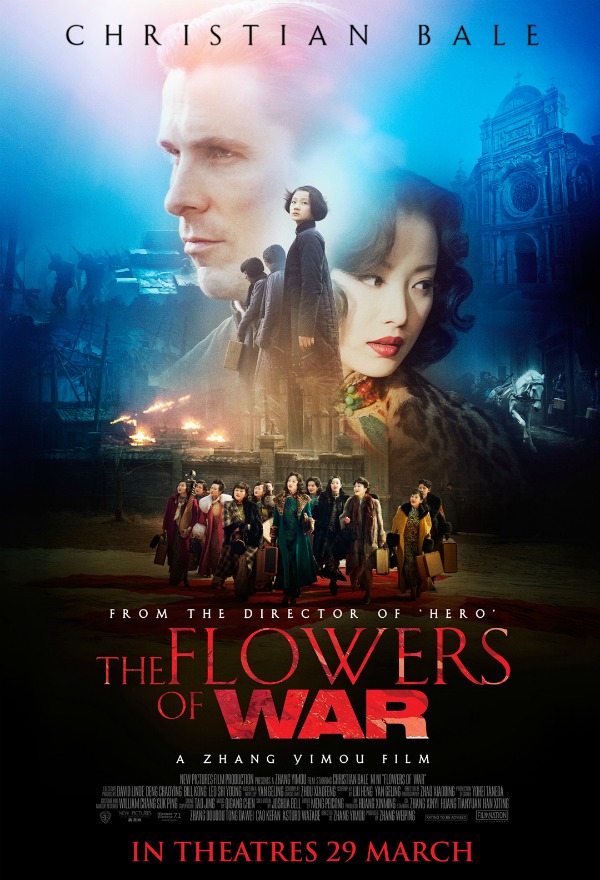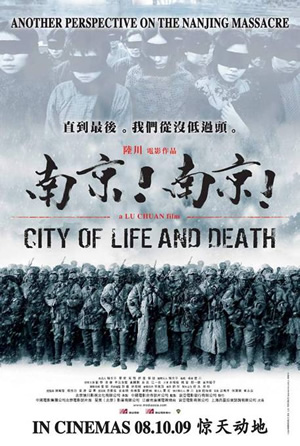DEAD TO RIGHTS (南京照相馆) (2025)
Genre: War/Drama
Director: Ao Shen
Cast: Liu Haoran, Wang Chuanjun, Gao Ye, Yang Enyou
Runtime: 2 hr 17 mins
Rating: NC16 (Violence)
Released By: Shaw Organisation
Official Website:
Opening Day: 28 August 2025
Synopsis: In the Nanjing Massacre of 1937, in order to save his life, postman A Chang pretended to be a photo developer in a photo studio and developed photos for the Japanese army. He also took in a group of Chinese soldiers and civilians, turning the studio into a temporary shelter. However, in the face of the Japanese army's cruel atrocities, A Chang risked his life to safely transfer the refugees and exposed the evidence of the massacre to the public.
Movie Review:
This is not an easy movie to sit through — and it rightfully shouldn’t be. Set against the backdrop of the 1937 Nanjing Massacre, when invading Japanese forces slaughtered hundreds of thousands of civilians and committed widespread atrocities, the film forces us to confront one of history’s darkest chapters. It is one thing to imagine the suffering the Chinese endured, and an entirely different experience to witness those horrors unfold on screen.
In one harrowing scene, a baby’s cries interrupt as Chinese captives are forced to pose for staged “happy” photographs. To silence it, a Japanese soldier rips the infant from its mother’s arms and hurls it to the ground. As if that cruelty were not enough, the baby is lifted again and thrusted into the arms of a terrified couple, forcing the woman to cradle it for a grotesque family portrait. In the cinema, the female viewer seated beside this reviewer could not bear to watch — she kept her hands pressed over her eyes the entire time.
It is little surprise that the wartime thriller released to commemorate the 80th anniversary of the victory in the War of Resistance Against Japan has dominated the domestic box office when it opened in China earlier this July. At the same time, it sparked debate for allegedly inciting anti-Japanese sentiments, particularly among younger audiences. One could argue at length about whether historical films should risk stoking such emotions by tapping into collective trauma. Yet, judged purely as a work of cinema, this film stands out as one of this reviewer’s favourites of the year.
The story follows a postman (Liu Haoran, at his earnest best) who survives by masquerading as a photo developer for the Japanese army. Beneath this façade, the studio he “works” in doubles as a precarious refuge — sheltering the Chinese owner of the studio (Wang Xiao), his family, a wounded soldier (Zhou You), and a struggling actress (Gao Ye). Hovering uneasily over them is a Chinese translator (Wang Chuanjun), reviled by some as a traitor, though he insists his collaboration is the only way to survive.
Their fates become entangled with a Japanese soldier (Daichi Harashima), assigned to photograph the supposed “triumphs” of the occupation. The film intriguingly frames him not as a one-dimensional villain, but as a man driven by his mission to capture the most striking images — his obsession with taking the “perfect” photograph becomes both his duty and his personal motivation.
One can see the immense potential for a stirring film here, and director Ao Shen seizes it fully — delivering a work that swells with emotion and is bound to move audiences to tears more than once. In his previous film No More Bets (2023), he gripped viewers with a tense, fast-paced tale about the dark world of online scams and human exploitation. This time, he achieves the same level of engrossing storytelling, but amplifies it further — tugging at our heartstrings with a haunting portrayal of survival, sacrifice, and the fragile humanity that endures even in the face of atrocity.
The film masterfully weaves the motif of photography throughout its narrative. Stark black-and-white photographs are juxtaposed with vivid, colour-moving sequences, creating a striking visual contrast. In one profoundly moving moment, the stoic studio owner unveils canvas backdrops of iconic Chinese landmarks during one of the group’s final gatherings. Perhaps most haunting is a voiceover sequence that juxtaposes studio portraits of happy individuals with the grim realities they later face. Some may call it sensationalism, but it is an undeniably powerful storytelling device—and this film wields it with precision.
Movie Rating:





(Not an easy movie to watch, but undeniably one of the most powerful and emotionally charged cinematic experiences in recent memory)
Review by John Li
You might also like:

Movie Stills





.jpg)


